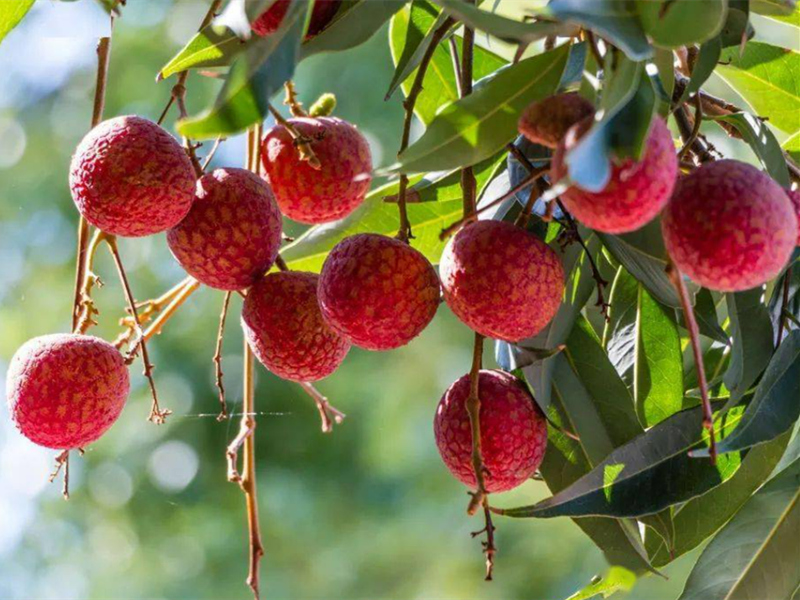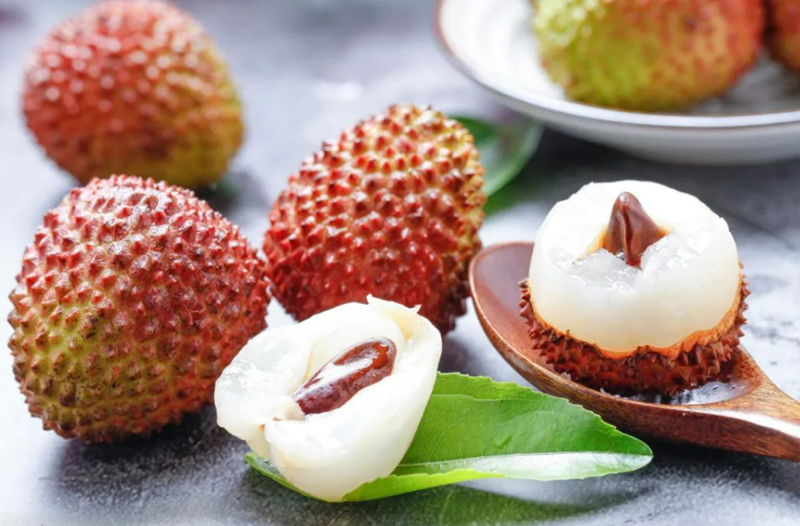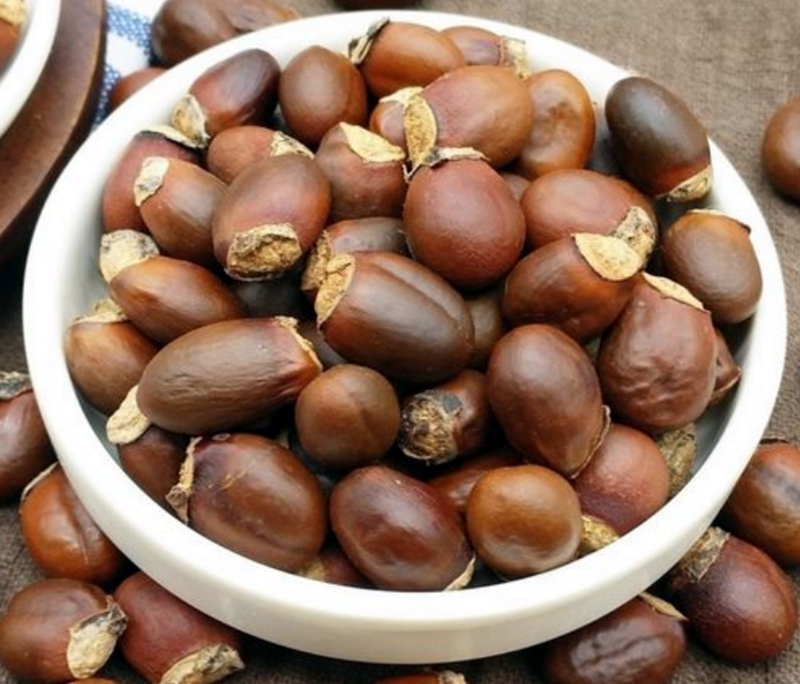Litchi(Litchi chinensis), also referred to as lychee or lichi, a sweet fruit originating from Southeast Asia, including China, Thailand, and Vietnam, has been cultivated for over 3,000 years. The litchi fruits have white to translucent flesh and a pinkish-brown pericarp. As a common fruit in Asia, it is generally eaten raw and also used to flavor cocktails. Litchi fruits have been treasured as a tonic in China or decocted as a cough medicine. The short oval seeds are called litchi cores and are used in Traditional Chinese Medicine used for skin disease.
Lychees contain a good amount of vitamin C and antioxidants. In addition, they are rich in potassium and copper. These minerals are known to help strengthen brittle bones. Another benefit of lychee is that it may be helpful to reduce muscle cramps. This is because the dietary fiber present in lychee supports the digestive system and can decrease the chances of diabetes. They can also help to regulate blood pressure. Litchi seed extract contains Saponin, Tanin, Leucocyanidin (Flavonoid), Litchioside, Anthocyanin (Cyanidin glycoside, Malvidin glycoside), etc. Litchi seed extract is known for its skin and weight loss benefits. The benefits also include increased digestion, anti-inflammatory properties, and even anti-tumor characteristics.
Skin health
Lychee can be used for skin care since ancient China. The pulp contains a powerful compound called oligonol, This polyphenol has antioxidant, anti-inflammatory and anti-viral properties and can help to improve blood circulation. Lychee seed extract used to be developed as a cosmeceutical ingredient to inhibit enzymes involved in the degradation of collagen, elastin, and hyaluronic acid, thus inhibiting decreases in collagen, elastin and hyaluronic acid, and keeping the moisture of the skin, stopping wrinkles. Lychee seed extract also inhibit tyrosinase, thus inhibiting melanin formation and eliminates active oxygen (superoxide) and other molecular radicals, which would prevent wrinkles, and pores and skin aging, by acting like superoxide dismutase (SOD), a radical scavenger. It is expected to promote whitening.
Weight loss
Litchi are a good source of Vitamin C, which helps build resistance against free radicals. These fruits also provide dietary fiber to keep digestive tracts healthy and reduce the risk of diabetes. The fruit is rich in antioxidants, which cleanse the blood and detoxify the liver. It also contains B complex vitamins, which help the body metabolize fats and carbohydrates. Although the seeds of the fruit have multiple pharmacologic applications in TCM, research has focused mainly on the effects of the seeds on insulin sensitivity. Some studies showed that the Litchi seed extract was effective in increasing insulin sensitivity and in repressing blood sugar levels.
Improve digestion
The composition of litchi seeds is a blend of starch polysaccharides, crude fibers, proteins, and oil. Aside from its high nutritive value, it also contains bioactive crystalline alkaloids that regulate blood sugar level. Moreover, it is an excellent source of dietary fiber that enhances digestive health. Litchi seed starch is extracted by using alkali and citric acid, is a type of resistant starch that is often used in food processing. Among other commercial starch sources, it is considered a non-conventional source of starch, which reduces the need for conventional food crops. However, detailed studies are required to explore its composition.
Anti-tumor properties
The anti-inflammatory effects of Litchi pericarp and leaves have been demonstrated in both in vitro and in vivo models. It has also been shown to decrease tumor mass in vivo. Litchi seed extract contains a rich amount of polyphenols, flavonoid glycosides, and other biologically active compounds, which have anti-inflammatory, antioxidant, immunomodulatory, and hypoglycemic activities. They have been shown to have anti-cancer properties, anti-hyperlipidemic effects, and other therapeutic activities. Various biochemical mechanisms are involved in its activity. These include activation of caspase-3, decreased levels of cyclin D1 and B1, inhibition of epidermal growth factor receptor, and induced cell-cycle arrest. Litchi seeds have also been reported to inhibit the proliferation of HepG2 cells. However, it is not clear how these activities are achieved.
Studies of the effects of litchi seeds on human breast cancer cells have revealed an inhibitory effect. These seeds inhibit the proliferation of cancer cells by acting on the p65 unit of the cells and by decreasing the activity of apoptosis-inducing enzymes. The seeds also suppress the expression of the pro-apoptotic Bcl-2 family members. In addition to these beneficial effects, the seeds also have been shown to exhibit anti-neoplasmic activities in some hepatocellular carcinoma and lung cancer cell lines. However, there are still more studies to be done to understand the anti-cancer effects of litchi seed extract.





